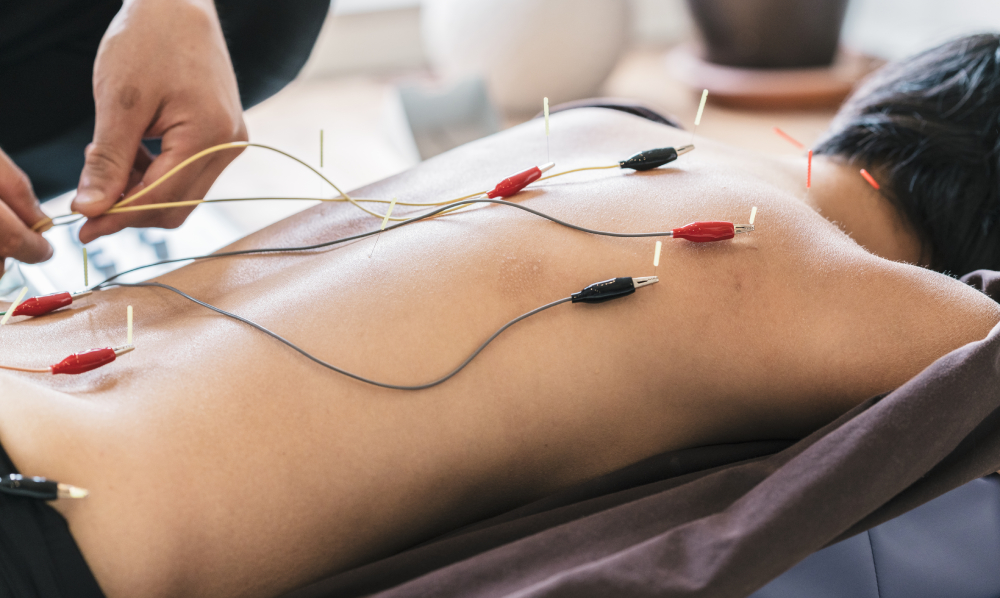What Is Neuropuncture?
Neuropuncture, a relatively recent development in acupuncture, combines traditional Chinese medicine techniques with modern neurology. This innovative approach aims to treat neurological and chronic pain conditions by stimulating specific acupuncture points along the nervous system. Let’s delve into the intricacies of neuropuncture:
- Understanding Neuropuncture
- Foundational Concept: Based on traditional acupuncture principles, neuropuncture focuses on the nervous system’s pathways and neurochemical responses.
- Neurological Integration: Incorporates knowledge of neuroanatomy, neurophysiology, and the science of pain management.
- Targeted Approach: Aims to modulate the nervous system, promoting healing and pain relief.
- The Therapy Process
- Initial Assessment: A comprehensive evaluation of the patient’s neurological and overall health status.
- Customized Treatment Plan: Tailored to address specific neurological conditions or pain issues.
- Point Selection: Focuses on acupuncture points that correlate with nerve pathways and neuroanatomical structures.
- Procedure and Techniques
- Needle Insertion: Utilizes acupuncture needles strategically placed to stimulate nerve endings and pathways.
- Electroacupuncture: Often combined with electrical stimulation to enhance nerve activation.
- Frequency and Duration: The number of sessions varies based on the condition and individual response.
- Benefits of Neuropuncture
- Pain Management: Effective for various types of pain, including neuropathic pain and chronic conditions.
- Neurological Disorders: Can benefit conditions like multiple sclerosis, Parkinson’s disease, and post-stroke symptoms.
- Mental Health: Helpful in treating anxiety, depression, and stress-related disorders.
- Overall Well-being: Promotes a sense of overall wellness and balance.
- Risks and Side Effects
- Mild Discomfort: Some may experience brief pain upon needle insertion.
- Bruising or Bleeding: Minor and typically temporary.
- Dizziness or Nausea: Rare, but can occur, especially if not properly hydrated or nourished before treatment.
- Who Should Be Cautious
- Those with Severe Neurological Disorders: Should consult their doctor before starting neuropuncture.
- Pregnant Women: Certain acupuncture points are avoided during pregnancy.
- Individuals with Blood Disorders: Such as hemophilia or those on anticoagulant therapy.
- Finding a Qualified Practitioner
- Specialized Training: Seek practitioners who have specific training and certification in neuropuncture.
- Experience with Neurological Conditions: Experienced practitioners can effectively treat specific neurological issues more effectively.
- Consultation: A good practitioner should offer an initial consultation to discuss your specific condition and treatment goals.
- Research: Investigate their qualifications, reviews, and any additional complementary practices they might integrate.
- Conclusion
Neuropuncture presents a novel approach in the realm of acupuncture, offering hope for those with neurological conditions and chronic pain. Its integration of traditional Chinese medicine with contemporary neurological understanding marks a significant advancement in holistic treatment methods. As with any specialized therapy, consulting with a qualified and experienced practitioner is essential for safe and effective treatment.
This detailed exploration of neuropuncture provides insights into its principles, practices, benefits, and considerations, emphasizing the importance of professional guidance in this cutting-edge therapeutic field.
Conditions Treated
- Pain Conditions: Musculoskeletal Pain (back, neck, knee, shoulder, elbow, etc.), Arthritis, Migraines, Headaches, Sports Injuries, Fibromyalgia, TMJ, Post-Operative Recovery, Nervous System Disorders.
- Respiratory Disorders: Asthma, Allergies, Sinus Problems.
- Gastrointestinal Disorders: Irritable Bowel Syndrome, Food Allergies, Ulcers, Gastritis, Acid Reflux, Indigestion, Constipation/Diarrhea.
- Women’s Health: Infertility, PMS, Menstrual Irregularities, Endometriosis, Poly Cystic Ovarian Syndrome, Menopause, Hormonal Imbalances, Pregnancy Conditions, Postpartum, Reproductive Disorders, Breech Baby.
- Men’s Health: Incontinence, Reproductive Disorders, Prostate Problems.
- Children’s Health: Coughs, Colic, Allergies, ADD/ADHD, Sleep Disorders, Digestive Problems, Fever/Flu/Colds, Stomach Aches/Nausea, Headaches, Bed Wetting.
- Addictions: Smoking, Cravings, Drug, Alcohol.
- Mental/Emotional: Depression, Anxiety, Insomnia, Sleep Disturbances, Stress.


